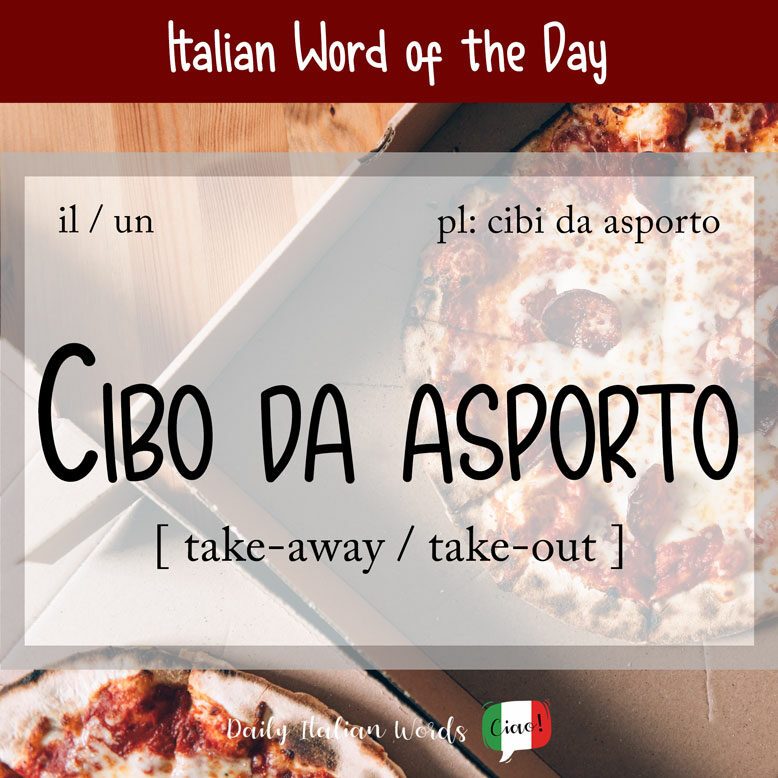Cooking dinner is one of the most labour-intensive chores of the day, especially when you’re tired and your children insist on performing acrobatics between your legs as you try to juggle the pots and pans on the stove. (And yes, I am talking from experience!)
This is why many of us resort to take-away food, known as cibo da asporto in Italian.
cibo da asporto
take-away food

Cibo is a masculine noun, and the plural is cibi. It takes the following articles:
il cibo da asporto
un cibo da asporto
i cibi da asporto
dei cibi da asporto
The expression da asporto is made up of the preposition da (of / from / by) and asporto, which literally means removal. For example, the removal of materials translates as l’asporto dei materiali in Italian.
Quando torno tardi la sera, sono troppo stanco per cucinare, per questo prendo sempre del cibo da asporto.
When I come home late, I’m too tired to cook. That’s why I always get take-away food.
You can apply it to all kinds of food and drink, including:
- pizza da asporto = take-away pizza
- vino da asporto = take-away wine
- gelato da asporto = take-away ice cream
- piatto da asporto = take-away dish
- pasto da asporto = take-away meal
Note: In front of a word beginning with a vowel, the preposition da is elided only in the expressions d’ora in poi (from now on), d’ora in avanti (from now on), d’altra parte (on the other hand), and d’altronde (on the other hand). Otherwise, the full form must be kept, so as not to create possible confusion with the identical elided form of the preposition di (of). Source: Treccani

A synonym for da asporto is da portare via which is a word-for-word translation of ‘to take away’. What’s more, the English takeaway has entered the Italian language, so if you can’t remember either of these expressions, you can always fall back on takeaway, pronounced with an Italian accent.
Non ho voglia di cucinare stasera. Prendiamo una pizza da portare via?
I don’t want to cook tonight. Shall we get a takeaway pizza?
Heather Broster is a graduate with honours in linguistics from the University of Western Ontario. She is an aspiring polyglot, proficient in English and Italian, as well as Japanese, Welsh, and French to varying degrees of fluency. Originally from Toronto, Heather has resided in various countries, notably Italy for a period of six years. Her primary focus lies in the fields of language acquisition, education, and bilingual instruction.


